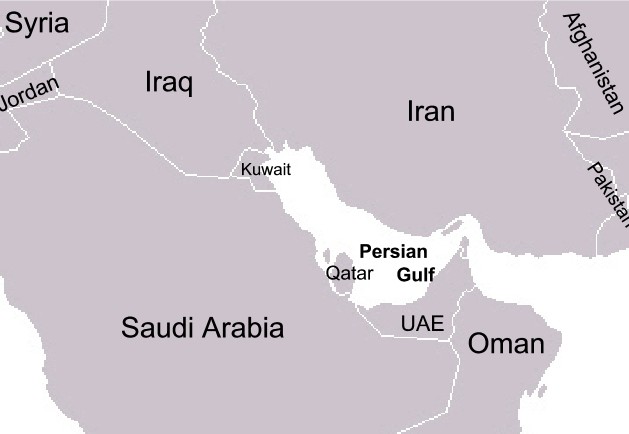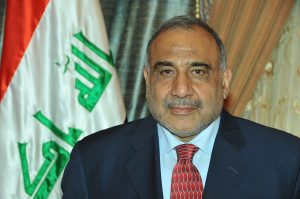by Javad Heiran-Nia
The implementation of effective security mechanisms in the Persian Gulf region has always been a matter of concern for the Gulf States. The main objective is to have a common goal, and hence, construct techniques to achieve stable regional security.
But the Gulf States have not been able to establish a clear definition of the level of security needed in the Persian Gulf and how to maintain the peace in this strategically significant region. A power struggle has grown more intense among the Gulf States, some of whom demand supremacy in their absolute power and control over the Persian Gulf. A case in point is the current conflict between Saudi Arabia (and the UAE) and Qatar. But there is also the ongoing war in Yemen as well as the larger confrontation between Saudi Arabia and Iran.
Because of these conflicts, it is vital for all the regional states to negotiate a new security order for the Persian Gulf.
There are various obstacles that have hindered the establishment of stable and sustainable security in the Persian Gulf region. The demand by some Gulf States for dominance over the region, political and ideological differences, and the competitive procurement of weapons have all caused friction among the Gulf States, thereby preventing them from cooperating with one another in creating security in the region.
Although it is imperative that security be arranged over the long term, the manner by which this can be achieved has remained elusive. The creation of the Gulf Cooperation Council (GCC), established in 1981 to confront Iran and Iraq, did not serve as a long-term solution, in part because it did not alter its scope from a military agreement to an official treaty un.
The Association of Southeast Asian Nations (ASEAN) is a model for cooperation that the Persian Gulf states could emulate. However, due to the heterogeneity of ASEAN member-states, this treaty has not been effective in dealing with security issues. ASEAN became largely economically oriented after the Bali conference in 1976.
Another alternative model for cooperation among the Persian Gulf’s member states is the Conference for Security and Cooperation in Europe (CSCE), the precursor of the Organization for Security and Cooperation in Europe. Created with the 1975 Helsinki Accords, the CSCE allowed members of the North Atlantic Treaty Organization (NATO) and the signatories of the Warsaw Pact to engage in talks about their security concerns. The CSCE was based on principles such as nonaggression, the acceptance of defined borders, the pursuit of peaceful resolution in times of crises, and non-intervention in the domestic affairs of sovereign states by foreign entities.
This model could be successfully implemented in the Persian Gulf region since it stresses cooperation, common objectives, and non-aggression, but it would have to be comprehensive—including Iran, Iraq and the members of the GCC. The Gulf States could discuss a collaborative security agenda and explore symmetrical measures like trust-building initiatives and arms control agreements. Lack of trust has been a major source of insecurity and instability in the Persian Gulf. But the experiences of the Damascus Declaration (6+2 Treaty) and the GCC have demonstrated that a comprehensive security framework in the Persian Gulf region can be reached in an atmosphere of cooperation. Even if such a CSCE-like framework does not lead to a permanent treaty, it could nevertheless create better security relations in the region.
Such a regional security framework could begin with a dialogue between Iran and the GCC, with the support of the U.S. to strengthen this process. Dialogue among member states in the region would begin at the political level before moving on to security issues. Strategic stability can come from mutually implemented measures and policies adopted by all sides on matters relating to Iraq, Yemen, Syria, and Lebanon. Inspired by political scientist Karl Deutsch’s “pluralistic security community,” such a framework would require sovereign states to refuse to use aggression and war in their mutual relations.
Ultimately, however, such a framework requires trust, a commodity that is in short supply in the Persian Gulf today.
Javad Heiran-Nia is the head of the international desk of Mehr News Agency (MNA), a semi-official, state-funded news agency and one of Iran’s biggest agencies. Map of the Persian Gulf courtesy Wikimedia Commons.






Divide & conquer! The three largest consumers of fossil fuel namely the US, EU and China are fiercely competing against each other! The newly competitor or China is approaching its fuel suppliers very much differently and in a constructive way as opposed to the US and EU that have and continued to date by controlling their fuel suppliers by dividing them and sometimes by military means as necessary! Of course Russians as a supplier do enjoy this situation by selling their fossil fuel without being involved politically or militarily! The west being a stronger purchaser of the fossil fuel over China will not allow the Persian Gulf states to unify in any kind of peaceful treaties! It is really wishful thinking that the west will support any form of agreement amongst the suppliers!
A little reality testing is in order for this part of the world. There are countries in this world with a billion people or more that have finally achieved freedom from much smaller European countries interfering in their internal affairs. After centuries of trying in some cases. The Middle East is no different except they have not achieved independence like our Asian friends. They are still dependent on others for weapons or money or both.
The single most identifiable problem for all to see is once more countries with much smaller populations wanting to dominate countries with 2,3, even 8 times as many people. It doesn’t work, never has and always ends up in conflict. A nation with 8 or 10 million people should not expect to dominate an old empire of 5000 years that has 8 times as many citizens. The Europeans have created this problem with their arbitrary maps and gun powder diplomacy. Let the Arabs and Persians sort out their problems without our weapons or money. I don’t know how you reconcile the 2 branches of Islam. I suspect you don’t do it with missiles and jets.
Despite very valid claims made by Mr.Ahwazi and Mr.Rohde,my understanding is that historically all opportunities to re-align and create independence entities in middle east from yoke of West have been failure since Nasser’s initiative in 60.Unless awakening comes to unite ,it appears that likely hood of that day is far away. After all all small population/wealthy countries are very well dependent on west weapons and very basic survival.